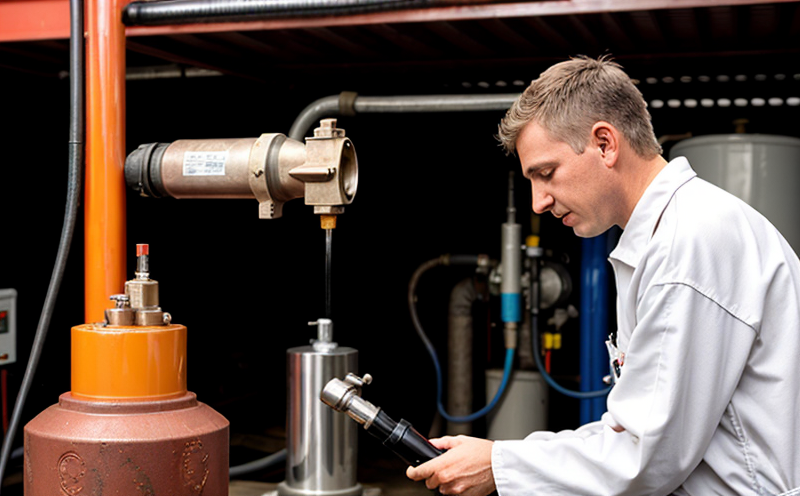ASTM D3948 Water Separation Index Testing (WSIM)
The ASTM D3948 Water Separation Index Test Method (WSIM) is a critical procedure in the aerospace and aviation industries, ensuring that fuel and lubricants maintain their integrity under various operational conditions. This test assesses the water separation ability of fuels and lubricants by measuring how quickly free water can be separated from the sample.
The ASTM D3948 WSIM test is particularly relevant for ensuring fuel and lubricant quality in environments where moisture content could impact performance, such as during storage or transportation. The primary goal is to determine if the fuel or lubricant will separate water effectively when exposed to environmental conditions that may introduce moisture.
The testing process involves a series of steps designed to simulate real-world scenarios. Initially, the sample is prepared by mixing it with a known amount of water according to ASTM D3948 specifications. The mixture is then placed in an oven where it undergoes heating and cooling cycles to replicate the thermal stresses experienced during fuel handling.
The test apparatus typically includes a specialized separation vessel that allows for precise measurement of the time taken for free water to separate from the sample. This vessel ensures that all components are accurately measured, providing reliable data on the sample's performance.
After the specified heating and cooling cycles, the separated water is collected, and its volume is measured. The result is expressed as the time in minutes required for 95% of the free water to separate from the fuel or lubricant. This value is critical for ensuring that fuels and lubricants can maintain their quality under various conditions.
The ASTM D3948 WSIM test is widely used by manufacturers, suppliers, and regulatory bodies to ensure compliance with international standards such as ISO 12145-6 and AS/NZS 4708. The test's reliability in identifying fuel and lubricant quality issues has made it a standard procedure in the aerospace industry.
Understanding the ASTM D3948 WSIM test is essential for quality managers, compliance officers, R&D engineers, and procurement professionals who need to ensure that fuels and lubricants meet stringent performance criteria. The test's ability to simulate real-world conditions makes it an indispensable tool in maintaining fuel and lubricant integrity.
The ASTM D3948 WSIM test is not only a technical procedure but also a critical component of quality assurance processes in the aerospace sector. It helps ensure that fuels and lubricants perform reliably under various environmental conditions, thereby enhancing safety and operational efficiency.
International Acceptance and Recognition
- The ASTM D3948 WSIM test is widely recognized in the aerospace industry and is accepted by major regulatory bodies worldwide.
- It aligns with international standards such as ISO 12145-6, ensuring that results are comparable across different regions.
Competitive Advantage and Market Impact
- The ASTM D3948 WSIM test helps companies maintain a consistent quality standard, which is essential for building trust with customers and regulatory bodies.
- By ensuring that fuels and lubricants can separate water effectively, the test enhances operational reliability, thereby reducing maintenance costs and downtime.





